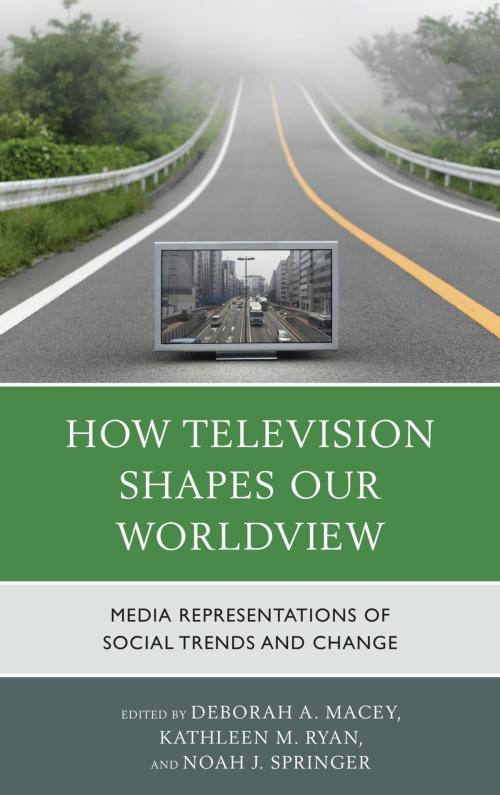How Television Shapes Our Worldview
Media Representations of Social Trends and Change
Nonfiction, Reference & Language, Language Arts, Communication, Entertainment, Television, Performing Arts| Author: | Stylés I. Akira, Lane Clegg, Cindy Conaway, Katherine A. Foss, Charity Fox, Carrie Packwood Freeman, Jennifer Ellen Good, Robert D. Gratz, Chandler Harris, Tim Karis, Katherine J. Lehman, Lauren Lemley, Joy Chavez Mapaye, Gretta Moody, Ariadne Alejandra Gonzalez, Larry Ossei-Mensah, Leighton C. Peterson, Ji Yoon Ru, Danielle E. Williams, Susan H. Sarapin, Glenn G. Sparks, Margaret Tally, Deborah A. Macey, Kathleen M. Ryan, Noah J. Springer, Jack A. Barwind, Philip J. Salem, Edward A. Janak, Michelle Napierski-Prancl | ISBN: | 9780739187050 |
| Publisher: | Lexington Books | Publication: | May 15, 2014 |
| Imprint: | Lexington Books | Language: | English |
| Author: | Stylés I. Akira, Lane Clegg, Cindy Conaway, Katherine A. Foss, Charity Fox, Carrie Packwood Freeman, Jennifer Ellen Good, Robert D. Gratz, Chandler Harris, Tim Karis, Katherine J. Lehman, Lauren Lemley, Joy Chavez Mapaye, Gretta Moody, Ariadne Alejandra Gonzalez, Larry Ossei-Mensah, Leighton C. Peterson, Ji Yoon Ru, Danielle E. Williams, Susan H. Sarapin, Glenn G. Sparks, Margaret Tally, Deborah A. Macey, Kathleen M. Ryan, Noah J. Springer, Jack A. Barwind, Philip J. Salem, Edward A. Janak, Michelle Napierski-Prancl |
| ISBN: | 9780739187050 |
| Publisher: | Lexington Books |
| Publication: | May 15, 2014 |
| Imprint: | Lexington Books |
| Language: | English |
Over the last half of the twentieth century, television has become the predominant medium through which the public accesses information about the world. Through the news, situation comedies, police dramas, and commercials, we learn about the world around us, and our role within it. These genres, narratives, and cultural forms are not simply entertainment, but powerful socializing agents that show the world as we might never see it in real life. How Television Shapes Our Worldview brings together a diverse set of scholars, methodologies, and theoretical frameworks to interrogate the ways through which television molds our vision of the outside world. The essays include advertising and public relations analyses, audience interviews, and case studies that touch on genres ranging from science fiction in the 1970s to current “reality” television. Television truly provides a powerful influence over how we learn about the world around us and understand its social processes.
Over the last half of the twentieth century, television has become the predominant medium through which the public accesses information about the world. Through the news, situation comedies, police dramas, and commercials, we learn about the world around us, and our role within it. These genres, narratives, and cultural forms are not simply entertainment, but powerful socializing agents that show the world as we might never see it in real life. How Television Shapes Our Worldview brings together a diverse set of scholars, methodologies, and theoretical frameworks to interrogate the ways through which television molds our vision of the outside world. The essays include advertising and public relations analyses, audience interviews, and case studies that touch on genres ranging from science fiction in the 1970s to current “reality” television. Television truly provides a powerful influence over how we learn about the world around us and understand its social processes.















